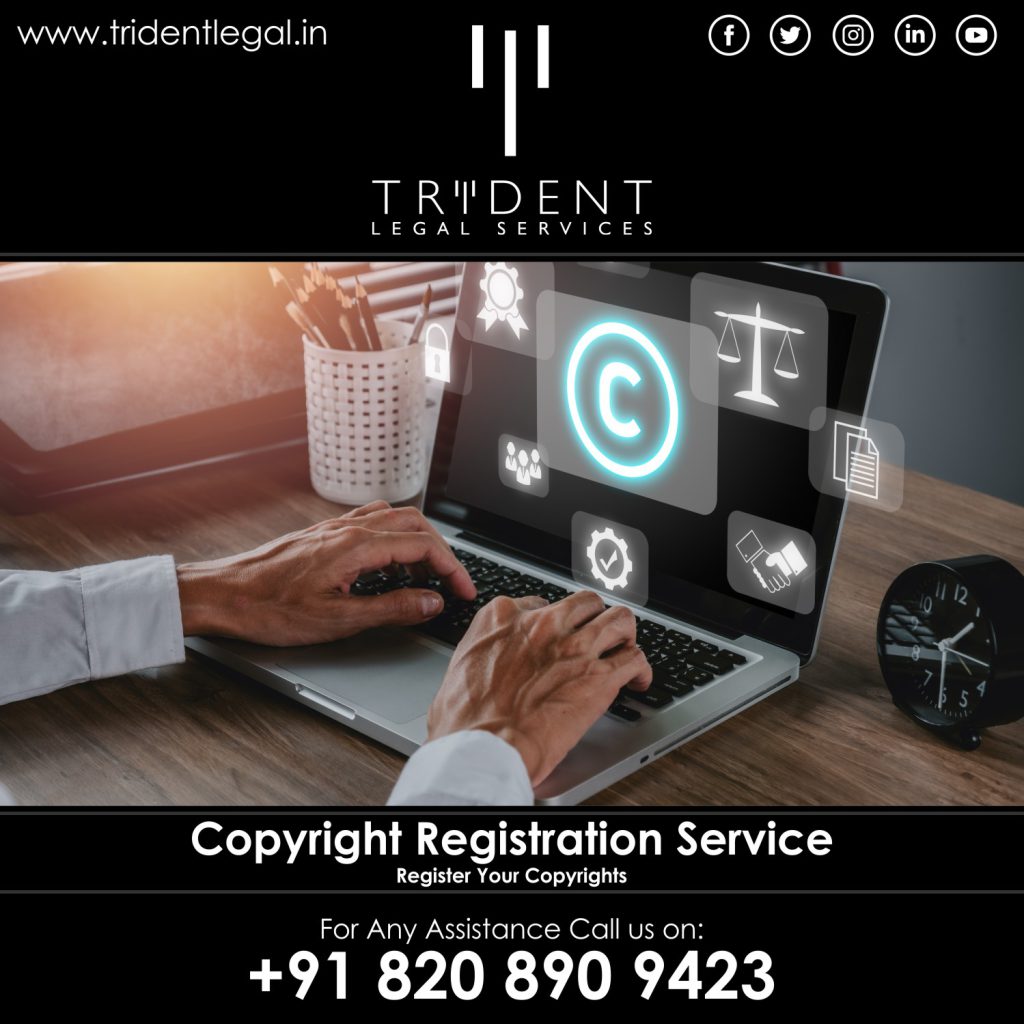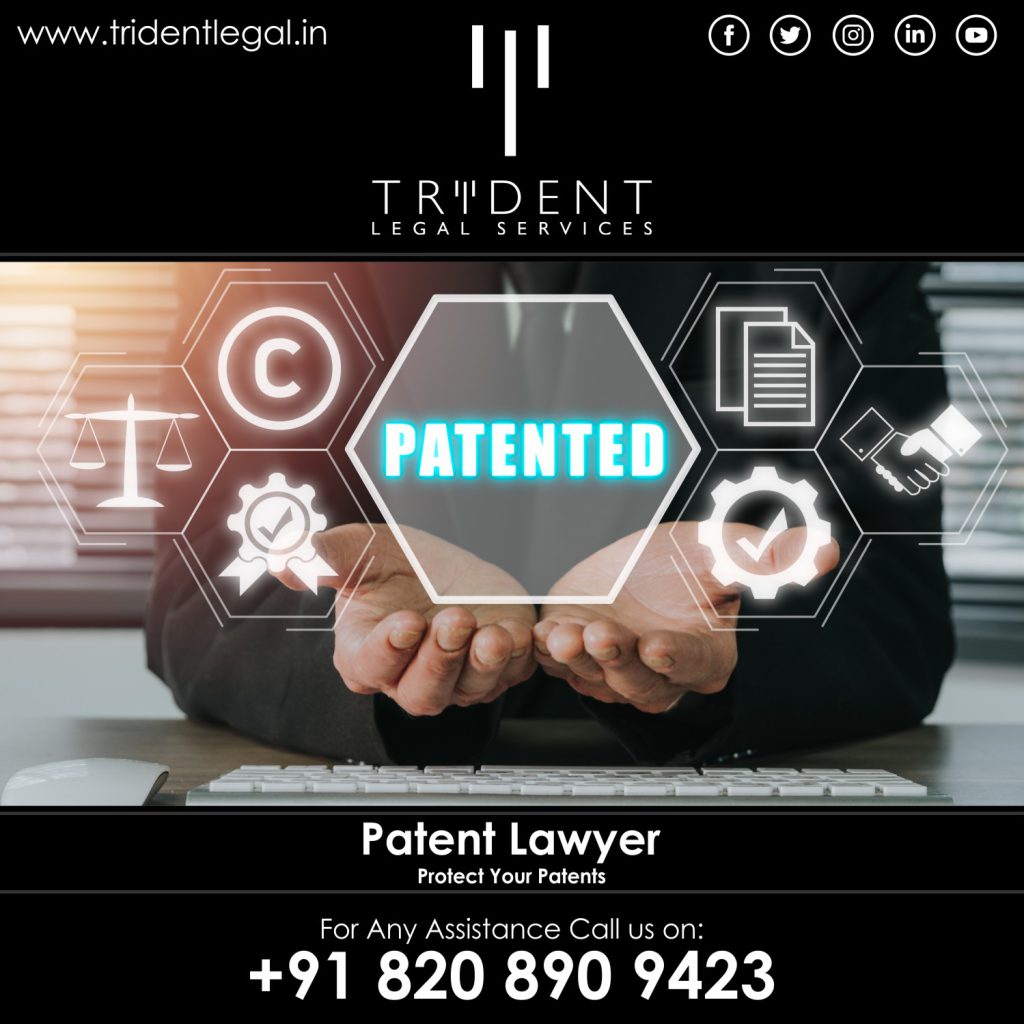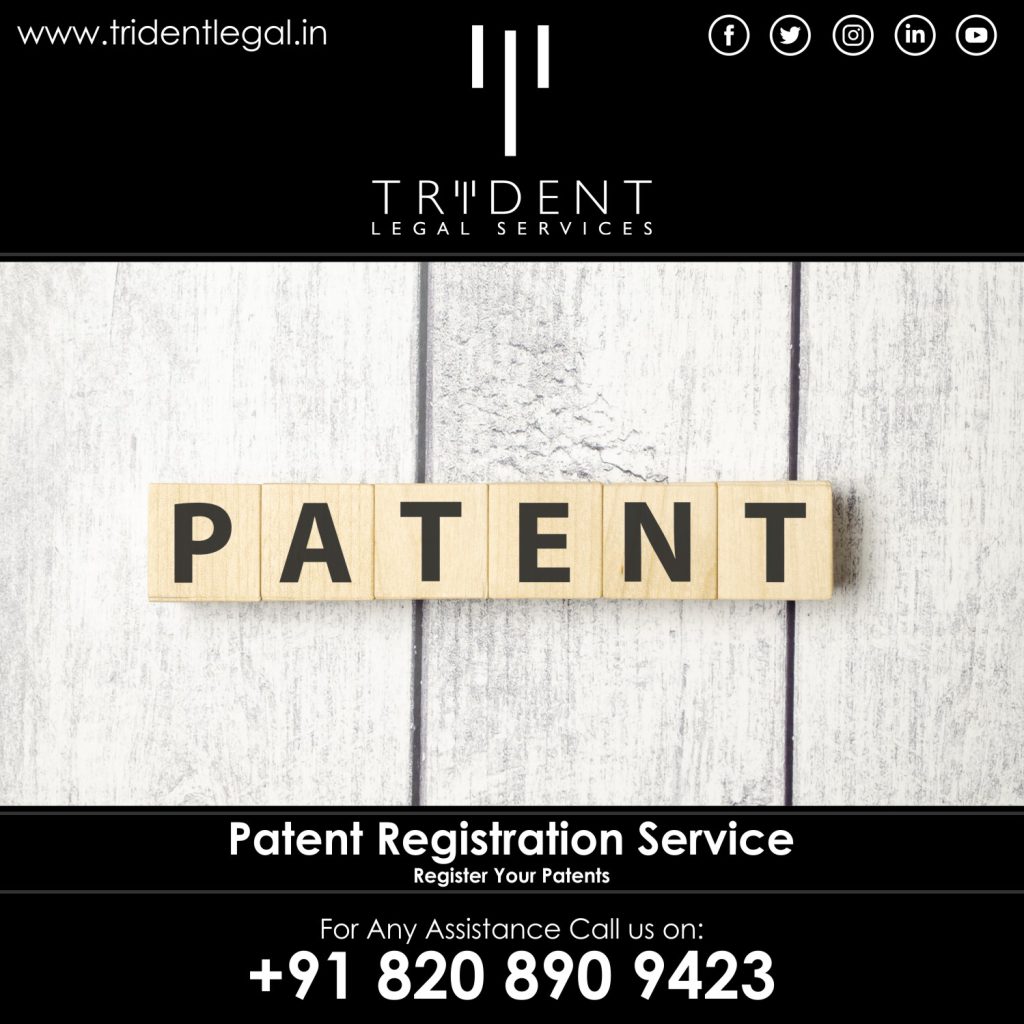Patent Lawyer in Pune
- Guranted Expert Guidance
- Client-Centered Approach
Trustindex verifies that the original source of the review is Google. If you're looking for a competent and reliable Criminal Lawyer in Pune, Trident Legal is the way to go. They handled my case with utmost professionalism.Trustindex verifies that the original source of the review is Google. Best Legal services in PuneTrustindex verifies that the original source of the review is Google. gives good guidance in legal matters....Trustindex verifies that the original source of the review is Google. These lawyers are very good and help very wellTrustindex verifies that the original source of the review is Google. Provides best marriage registration service in pune
+91 820 890 9423
desk@tridentlegal.in
Flat No. 302, Kalunkhe Niwas, Khopade Nagar, Gujaewadi, Katraj, Pune - 411041
Patent Lawyer in Pune
- 1 Patent Lawyer in Pune
- 2 Patent Lawyer in Pune:
- 3 How to Choose the Best Patent Lawyer in Pune?
- 4 What is a Patent?
- 5 About the Indian Patent Act, 1970:
- 6 Patent Registration Process in Pune, Maharashtra:
- 7 Documents Required for Patent Registration in Pune:
- 8 Types of Patents:
- 9 Latest News on Patent Registration Law in India:
- 10 Law Amendment Related to Patent Registration Law in India:
- 11 What Does a Patent Registration Lawyer Do?
- 12 Importance of Patent Registration Law:
- 13 Why Choose Trident Legal?
- 14 Services We Provide:
- 15 Conclusion
- 16 FREQUENTLY ASKED QUESTIONS (FAQ’S) FOR PATENT LAWYER IN PUNE
- 17 WHAT PEOPLE SAYS ABOUT US?
- 18 Read our latest News insights
They welcome you To Trident Legal, your trusted partner in the field of law about patents. If you’re looking for an experienced Patent Advocate in Pune, look at Trident Legal. Led by the world-renowned lawyer Advocate Nikhil Rathod, Trident Legal stands as an example of excellence and provides unbeatable legal assistance in the area of patent law.
Patent Lawyer in Pune:
Selecting the most effective patent Lawyer for Pune is a crucial decision for entrepreneurs, individuals and even businesses. Advocate Nikhil Rathod’s vast knowledge and extensive experience in patent law make him an ideal choice. With a deep dedication to the success of his clients and satisfaction, he pays close attention to detail and an unwavering commitment to getting maximum outcomes.
How to Choose the Best Patent Lawyer in Pune?
The selection of the best patent Advocate requires careful consideration. Consider qualifications and experience, a track record of success, cases, and a focus on the client. Advocate Nikhil Rathod embodies these qualities by having secured patents in different areas.
What is a Patent?
Patents are a form of intellectual property that grants their owner the right to bar other people from using, making the invention, or selling it for a specified period in exchange for publication of the enabling disclosure of the invention.
In the sense that the patent is a government-issued patent monopoly over an invention. The patent holder has exclusive rights to utilize their invention over 20 years, in the period they can block others from using, making the invention, or selling it without their consent.
In order to obtain a patent, inventors must submit a patent request to the government’s patent office. The patent application should describe the invention and why it is unique and valuable. A patent office would examine the application and determine whether or not to give the patent.
If the patent office approves the patent, the holder will receive the patent number and the term. The term patent is when the holder is the sole owner of the right to use the invention. For the United States, the patent term for utility patents is 20 years.
Patents can be a valuable asset for companies. They can secure their investments in research and development and stop competition from copying products or services. Patents are also a way to raise funds and draw investors.
Here are a few instances of patents that are examples:
- The Wright Brothers’ patent for the aircraft
- Thomas Edison’s patent on the light bulb.
- Patent of Alexander Graham Bell’s application for the telephone was granted to Alexander Graham Bell in the patent for the
- The Coca-Cola formula
- The style of the iPhone
There are three primary kinds of patents: utility, design, and plant.
- Patents for utility protect inventions that are innovative, valuable, beneficial, and not obvious. This covers inventions related to products or processes, machines, and even compositions of matter.
- Design patents safeguard the ornamental style of a product. This can include the form, configuration or ornamentation of the product.
- Patents on plants safeguard new and distinct kinds of plants. This covers cultivated plants and trees, as well as shrubs and vines.
Patents are considered to be territorial rights. That means patents granted in one nation aren’t applicable in a different country. To obtain patent protection across multiple countries, inventors must submit patent applications to each country in which they would like protection.
About the Indian Patent Act, 1970:
The Indian Patent Act of 1970 is the principal law governing the patent system in India. The Act was passed to amend and consolidate the law related to patents within India. The Act became effective on April 20, 1972.
The Act defines patents as an exclusivity right granted by government officials to inventors for twenty years to impede other people from creating, selling, or even importing the idea with the author’s consent.
The Act sets out the conditions to obtain an invention patent for India. To qualify for patentability, the invention must be original, practical, and non-obvious. The invention should also be able for industrial use.
The Act also outlines the procedures for filing and awarding patents within India. Patent applications can be submitted to Kolkata’s Controller General of Patents, Designs, and Trade Marks (CGPDTM). The CGPDTM will review the application and determine whether to give the patent.
If the CGPDTM approves the patent, the patent holder will be issued an official patent number as well as an expiration date. The term of a patent of utility patent will be 20 years.
The Act also permits the cancellation of patents. Patents may be revoked when it is determined in violation or when it isn’t being used in India.
The Indian Patent Act of 1970 is a complex piece of legislation. Speaking to an Advocate for intellectual property is essential to determine if obtaining patents is the best option for your company.
Here are a few of the principal clauses of the Indian Patent Act of 1970:
- Who is eligible to submit a patent application: Anyone who is an Indian citizen of India or has a residence in India, or has a business location in India is eligible to apply for a patent for India.
- What is patentable: An invention is patentable if it is originally practical, valuable, and not obvious. The invention must also have the potential for industrial use.
- How to file a patent application: A patent application must be submitted to the Controller General of Patents, Designs, and Trade Marks (CGPDTM) in Kolkata. The application must be submitted in the prescribed form and include an explanation of your invention, its claims, and drawings if needed.
- Examining Patents, and Applications, A CGPDTM will review the application and determine whether or not to give the patent. The process of examination can be lengthy.
- Patent grant: If the CGPDTM grants a patent to the owner will receive an official patent number and the patent term. The term of a patent in the case of utility patents will be 20 years.
- The revocation process for patents Patents can be cancelled if declared invalid or if it’s not being used in India.
Patent Registration Process in Pune, Maharashtra:
The process of registering patents conducted in Pune, Maharashtra, is similar to the registration procedure for patents in other regions of India. The following are the most critical steps to be followed in registering patents in Pune:
- Conduct the patent search. The patent search is crucial to ensure that the idea you’re developing is original and not obvious. You can do the research yourself or employ a patent search company.
- Create Patent application: This is a complicated process, and hiring an experienced Advocate for patents is crucial to assist you in drafting your application. If needed, the application should explain the idea, its claims, and drawings.
- Filing the patent application through the Indian Patent Office: The patent application has to be submitted to the Controller General of Patents, Designs, and Trade Marks (CGPDTM) in Kolkata. The cost for the application amounts to INR 2,500 for micro entities and INR 5000 for non-micro entities.
- Examining the patent application, the CGPDTM will look into the patent application and then decide whether or not to give the patent. The process of examining can last many years.
- The publication of the patent When the application for a patent is deemed to be acceptable for review, it can be printed in the Indian Patent Journal. This provides the public with a chance to make comments regarding the proposed application.
- Patent grant: If the patent application is granted, the patent holder will receive the patent number along with the patent term. The term of the patent for utilitarian patents lasts for 20 years.
The registration of patents for patent registration in Pune is complex and long-winded. It is essential to hire an expert patent Advocate to assist you throughout the procedure.
Here are some more tips to help with patent registration in Pune:
- Pick a patent Advocate that knows India’s patent system—Indian patent law.
- Begin the registration process for patents early as you can. The patent registration process could take a long time, so it is crucial to begin the process early.
- Be prepared to invest cash in the registration process. The process of registering patents can be costly. Therefore, it is essential to be ready to invest cash.
- Be patient. The process for registering patents could be lengthy, so you must remain patient.
Documents Required for Patent Registration in Pune:
These are the necessary documents necessary to register a patent in Pune:
- Form 1: Application for Grant of Patent. This form should be completed in English and should include the following details:
- Address and name of the applicant’s address and name
- The title of the invention
- A brief introduction to the invention
- Claims
- Drawings, if needed
- Form 2: Provisional Specification. This form is a choice and is filed only in the event that the applicant still needs to prepare to file a complete specification.
- Formula 3. Declaration and undertaking under section 8. The applicant must complete the form and declare that the invention is only in use or made available for use in India for up to three years after the filing date of a patent application.
- Form 5: Declaration as to Inventor-ship. This form has to be signed by the creators. The form must confirm their identity as the authentic and original creators behind the idea.
- Formula 26: The Power of Advocate (if filled out through an agent for patents). The form has to be signed by the applicant. It must authorize the patent agent with the authority to act on behalf of the applicant when it comes to the registration of patents.
Additionally, an applicant could be required to supply additional documents, for example:
- The proof of eligibility to apply (e.g. an original duplicate of the passport or an official certification of the applicant’s citizenship)
- The evidence that demonstrates the time of the invention (e.g. an inventor’s notebook or witness statement)
- The evidence of the novelty (e.g. an original replica of a research report)
The required documents for registering a patent in Pune can differ depending on the invention’s circumstances. Speaking to an Advocate for patents is essential to find out the documents required for your particular situation.
Types of Patents:
Advocate Nikhil Rathod is a patent registration lawyer with more than a decade of expertise. He participates in the Bar Council of India and the Indian Patent Bar Association. He has a proven experience of achieving success in helping inventors secure their IP.
Advocate Nikhil Rathod excels in handling various patent types, including:
- Utility patents This patent protects inventions that are novel valuable, beneficial, and non-obvious. They may cover various inventions, such as machinery, products, processes and compounds of matter.
- Design patents: These protect the ornamental appearance of a piece of production. They may cover the design or configuration of an item.
- Patents for plants: These patents safeguard new and distinctive kinds of plants. They may cover plants that are cultivated, such as trees, plants and even vines.
The expertise of Advocate Nikhil Rathod extends across all industries, including:
- Technology for information: Advocate Nikhil Rathod has a wealth of experience in assisting inventors in the technology industry to safeguard the intellectual rights of their inventions. He has assisted clients in patenting inventions in hardware, software and networking.
- Life Sciences Advocate Nikhil Rathod has also helped clients within the life sciences sector protect their companies’ intellectual property. He has assisted clients in patenting inventions like biotechnology, pharmaceuticals, or medical equipment.
- Engineering Advocate Nikhil Rathod has also assisted customers in engineering to protect their intellectual properties. He has assisted clients in patenting inventions in fields like construction, manufacturing, and transportation.
Advocate Nikhil Rathod provides comprehensive legal solutions that can be tailored to your unique idea. He will assist you in discovering your idea and creating an effective patent strategy appropriate for your needs. He will also be your advocate during the entire process of filing a patent, from applying the defence of your patent in court.
Latest News on Patent Registration Law in India:
- Indian Patent Office has announced an initiative that will speed up the process of registering patents for entrepreneurs. The initiative, known as”the Startup Patent Fast Track Scheme in India, Patent Fast Track Scheme will offer startups an exclusive staff of patent examiners and a quicker timeframe in the process of the patent exam.
- The Indian government has suggested changes in the Patent Act of 1970. The changes proposed will make it simpler for small inventors to secure patents. They allow for granting compulsory licenses in certain circumstances and enhancing the enforcement of patent rights.
- The Indian Patent Office has issued several new guidelines for the examinability of patents. The guidelines cover many areas that include the patentability of software, the application of prior art, and the evaluation of novelty and non-obviousness.
- Indian Patent Office has also been improving the online filing system for patent application filing. The new e-filing system is created to make it easier for inventors to submit Patent applications online.
Law Amendment Related to Patent Registration Law in India:
There have been numerous amendments to the law relating to the law of patent registration in India in the past few years. The most significant changes are:
- The Patents (Amendment) Act, 2005: This amendment introduced protection for patents on chemical products, food items, and pharmaceuticals in India. Also, it made it simpler for smaller inventors to get patents and increased the protection of rights granted by patents.
- The Patents (Amendment) Act, 2010: This amendment introduced several modifications to the patent registration process, such as a shorter timeframe for patent examination and an entirely new system for granting mandatory licenses.
- Patents (Amendment) Regulations 2021 It made several modifications to the rules for patent registration, including reducing the cost of filing patents, prosecuting small and startup companies, and adding universities to the lists of institutions eligible to pay less.
These are only a few of the law changes related to the patent registration law in India. It is essential to keep current with the latest changes in patent law since they could affect the registration of patents.
What Does a Patent Registration Lawyer Do?
Patent registration lawyers like Advocate Nikhil Rathod can offer various services that assist inventors in protecting their IP. The services offered include:
- Patent search: A patent search can assist an inventor in determining if their invention is novel or not obvious. This is a vital part of the process of patent registration in that it helps the inventor save time or money to submit a patent application that’s likely to be rejected.
- Formulating patent applications: A patent registration lawyer can assist an inventor in preparing a patent application that conforms to the requirements of the Indian Patent Act of 1970. This is a complex procedure, so it’s essential to hire an experienced lawyer who can make sure your application has been correctly filed.
- Response to Office Actions: The Indian Patent Office could issue an office action regarding an application for a patent. This is a formal letter that poses questions regarding the application. Patent registration lawyers can assist an inventor in responding to the office’s decision and counter objections made by patent offices.
- Representing clients during patent disputes: If an inventor’s patent is violated, it may be necessary to file a lawsuit to safeguard their rights. Patent registration lawyers can help an inventor resolve patent disputes such as arbitration and lawsuits.
Alongside these services, Patent registration lawyers can offer advice regarding patent-related issues, including licensing, due diligence or portfolio management.
Importance of Patent Registration Law:
Patent registration is crucial to safeguard your intellectual assets and to gain an advantage in competition. It promotes innovation, encourages research and stimulates economic growth.
Why Choose Trident Legal?
Trident Legal, led by Advocate Nikhil Rathod, offers personalized focus, unwavering commitment and a focus on results. With our sole concentration on the law of patents, count on us to be your advocate to protect your intellectual assets.
Services We Provide:
Conclusion
In the ever-changing world of patent law, the Advocate Nikhil Rathod and Trident Legal stand out as an example of knowledge, commitment and achievement. With a thorough approach, unwavering dedication, and knowledge of the legal landscape, We are ready to assist you with registering patents. Contact us now at the following numbers:
Address: Khopade Nagar, Katraj, Pune, 411041 Phone: +91-820-890-9423 Email: desk@tridentlegal.in.
FREQUENTLY ASKED QUESTIONS (FAQ’S) FOR PATENT LAWYER IN PUNE
What is the Patent Registration Lawyer do?
A Patent Registration Lawyer specializes in intellectual property law in particular patent-related issues. They aid clients with the complicated process of patent registration, which includes everything from conducting patent searches and writing applications to assisting clients in patent disputes.
What is the reason I should hire a Patent Registration Lawyer?
Patent law is complex, and the Patent Registration Lawyer will ensure that your application complies with the legal specifications. They can increase the likelihood of approval, safeguard your rights, and offer exemplary guidelines during the whole process.
How do I submit a patent application on myself?
Although it is possible to file a patent request without legal aid, the process is a bit complicated and requires a thorough knowledge of the law behind patents. The help of a Patent Registration Lawyer enhances your application's credibility and improves the likelihood of getting approval.
What is the process by which Patent Lawyers conduct exhaustive patent research?
A Patent Lawyer conducts thorough searches to verify that your invention is original and not prominent. They review the existing patents in technical literature, as well as databases, to determine the patentability of your invention.
What's the role of a patent Lawyer during the drafting of an application?
Patent lawyers draft the patent application, making sure the application is precise and thorough in describing the unique features of your invention. They employ legal and technical experience to present your idea in a manner that is consistent with the legal specifications.
What is Patent? How can a Patent Registration Lawyer handle office actions?
If the patent office raises questions, issues, or objections, the Patent Registration Lawyer crafts responses that address these issues efficiently. Their expertise allows them to make compelling arguments and make the necessary changes.
What happens if the Patent Lawyer assists in enforcing my rights under a patent?
Yes, a Patent Lawyer can help enforce your rights to patents if anyone violates them. They take legal action to negotiate settlements or assist you in court to safeguard your intellectual property.
What's the difference between a utility patent and a Design patent?
A utility patent protects the practical aspect of an invention; however, a design patent safeguards the appearance of the invention. The Patent Registration Advocate can help to determine which type of patent best suits your idea.
What is the length of time the patent registration process requires?
The process of registering patents varies but generally takes several years. There are delays due to the backlog of examinations, backlogs, or possible revisions. Patent Registration Lawyers can estimate the time frame in light of their knowledge.
What characteristics do I need to look for in the qualities of a Patent Registration Lawyer?
When selecting a Patent Registration Lawyer, consider their expertise, experience, specialization in patent law their, successful track record, knowledge of your field, and proficient communication abilities. Advocate Nikhil Rathod at Trident Legal is a perfect example of these qualities, providing extensive legal solutions to patent registration.
WHAT PEOPLE SAYS ABOUT US?
I was really impressed with Trident Legal and Advocate Nikhil Rathod. Even though they just started,
Deepak Joshi
Trident Legal and Advocate Nikhil Rathod are really good at what they do. Even though they
Arjun Mehta
I had a great experience with Trident Legal and Advocate Nikhil Rathod. Even though they are
Preeti Mishra
Trident Legal, with Advocate Nikhil Rathod, is like a rising star in the legal world. I
Ritu Singh
I was lucky to work with Trident Legal and Advocate Nikhil Rathod. Even though they just
Prakash Gupta
Trident Legal and Advocate Nikhil Rathod are really amazing! They helped me with legal stuff and
Meera Patel
Trident Legal and Advocate Nikhil Rathod are like superheroes! They are really good at legal stuff
Rohit Verma
I wasn’t sure about Trident Legal because they are new, but they surprised me! Advocate Nikhil
Anjali Sharma
I had the honor of working with Trident Legal and Advocate Nikhil Rathod. They were really
Rakesh Kumar
Rakesh KumarTrident Legal, led by Advocate Nikhil Rathod, is like a superhero in the legal world. Even
Nisha Gupta











